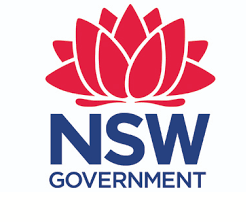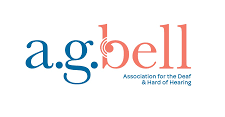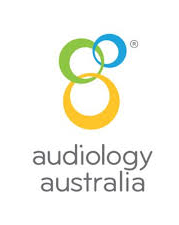
This Masterclass series will take place in person at the Australian Hearing Hub, as well as be offered live through a Zoom webinar from 12-1pm EST on the posted date. Ten days after each live event, a recording of the webinar will also be made available for you to watch via the Short Courses website. You will be notified via email for both the live event and when the recording is available to watch.
Topic 1: Hearing and vision impairment and mental well-being in older age (web access only)
Location: Australian Hearing Hub, Lecture theatre
Date: 30 March, 2020
Presenter: Piers Dawes
Age-related hearing loss is a marker of risk of cognitive decline and dementia. I will outline possible links between hearing/vision impairment and cognition, including hearing/vision loss as a biomarker for cognitive well-being, the impact of cognitive declines on function and sensory impairment as a causal contributor to cognitive decline and poor quality of life in older age. Controlled hearing intervention studies on long term cognitive outlines are challenging, so the evidence for the impact on hearing interventions is primarily from observational studies and will likely continue to be from studies other than randomised controlled trials.
Piers will share recent research including our own work modelling i) relationships between age-related impairment of sensory function and cognition and ii) modelling the impact of sensory interventions on cognitive outcomes between intervention and control groups. He will identify key challenges in addressing hearing impairment to improve mental well-being in later life and argue that effective prevention, identification and management of hearing and vision problems represents an important opportunity to optimise mental well-being and quality of life in older age.
Topic 2: The relationship of ear health to indigenous children’s phonological awareness in remote communities in the NT
Location: Australian Hearing Hub, Lecture Threatre
Date: 22 April, 2020
Presenter: Mridula Sharma
Two-thirds of Indigenous Australian children in the Northern Territory (NT) experience poor ear health and associated hearing loss. Indigenous children experience otitis media earlier in life and for longer periods than their non-Indigenous counterparts. Recent literature has highlighted a link between otitis media in the early years of life to impacted auditory processing skills in later childhood. There is also growing interest in the association between auditory processing ability and children’s learning of pre-literacy skills known as phonological awareness that contributes to word reading skills. In the current study, testing was conducted in remote Indigenous communities of Australia to determine associations between effects of pervasive otitis media on Indigenous children’s auditory processing and phonological awareness.
Topic 3: Musical based auditory training programs
Location: Australian Hearing Hub, Lecture Theatre
Date: 30 April, 2020
Presenter: John Newall
Music has played a significant role in human culture throughout human development. Claims abound in both the scientific literature and popular culture about the positive effects of music on; concentration, retention of information, intelligence, and even on the growth of crops and pot plants! Whilst these claims have varying scientific support, research has certainly shown the significant effects that musical training has on the brain and how it responds to sound. With a fairly robust finding that professionally trained musicians perform better across a range of auditory tasks, interest in investigating the potential for musical training to improve the listening abilities of those with hearing aids or cochlear implants has begun to grow. In this workshop we will discuss the evidence surrounding the benefits of involving music in the rehabilitation of the hearing impaired.
Topic 4: Family Adjustment to Diagnosis of Infant Hearing Loss
Location: Remote Access only
Date: 29 October, 2020
Presenter: Valerie Green
With most forms of childhood disability or developmental delay, parents may have intuited themselves that something is not quite right, and the diagnosis may come as a relief and confirmation that they know their baby well. However, the diagnosis of hearing loss following newborn hearing screening is nearly always a surprise to the family, with many parents experiencing feelings of distress and confusion.
Early intervention, including fitting of hearing aids, parent education and therapy support has been shown to lead to significantly better speech and language development for these children. For this reason, health professionals have an important role in assisting parents to adjust to the diagnosis, so they are able to move on to make decisions and plans for their child in a timely manner. This presentation will examine why this adjustment is so important, and consider three different types of normal responses by parents. Some particular types of hearing loss, which present their own issues with regard to adjustment, will be discussed, along with the factors which may influence parents along their journey to acceptance.
Topic 5: Predicting the probability of a successful audiological evaluation in children with developmental delay
Location: Australian Hearing Hub
Date: 9 November, 2020
Presenter: Sujita Kanthan
Audiological assessment in children with developmental delay is a challenging endeavour. A Paediatric Audiologist may be one of the first professionals that parents meet in their diagnostic journey, when a child is suspected of having a developmental delay/ ASD. Experienced Paediatric Audiologists can not only help to establish the status of the child’s hearing but also direct the parents to appropriate professionals who can further play a role in the diagnostic process.
This presentation will discuss the findings of a cohort study conducted at JPAC. A census was conducted of children who required Visual Reinforcement Orientation Audiometry (VROA) and Visually Reinforced Operant Conditioning Audiometry (VROCA), to analyse any referral trend and to establish the percentage of children with possible developmental delay. A checklist was used by the audiologists during the case history collection, to identify any early indicators of developmental delay/ASD. Information was also collected about any modifications made to the test procedure, to adapt to an individual child’s needs or behaviours. The presentation will outline some strategies that may help other audiologists to test a child with developmental delay and additional needs.
Visit the following link to register now! https://bit.ly/2SgCH68
Australian Hearing Hub members staff not seeking accreditation can attend the seminars free of charge
 Accreditation: Completing this webinar will contribute 1 hour NESA Registered PD addressing 1.1, 1.5,.1.6, 6.2,.6.3, 6.4, 7.4 from the Australian Professional Standards for Teachers towards maintaining Proficient Teachers Accreditation in NSW.
Accreditation: Completing this webinar will contribute 1 hour NESA Registered PD addressing 1.1, 1.5,.1.6, 6.2,.6.3, 6.4, 7.4 from the Australian Professional Standards for Teachers towards maintaining Proficient Teachers Accreditation in NSW.
 Accreditation: This course has been approved by AG Bell Academy for Listening and Spoken Language to offer LSLS™ 1 CEUs per presentation.
Accreditation: This course has been approved by AG Bell Academy for Listening and Spoken Language to offer LSLS™ 1 CEUs per presentation.
 Accreditation:
Accreditation:
Hearing and Vision Impairment and Mental Well-Being in Older Adults – webinar CPD1920 059 Category 1.2 – 1 CPD point
The Relationship of Ear Health to Indigenous Children’s Phonological Awareness in Remote Communities in the NT –
in-person event CPD1920 060 Category 1.1 – 1 CPD point
The Relationship of Ear Health to Indigenous Children’s Phonological Awareness in Remote Communities in the NT –
webinar CPD1920 061 Category 1.2 – 1 CPD point
Musical Based Auditory Training Programs – in-person event CPD1920 062 Category 1.1 – 1 CPD point
Musical Based Auditory Training Programs – webinar event CPD1920 063 Category 1.2 – 1 CPD point





